The Best Men’s Running Jackets
Our top picks for both waterproof and water-resistant running jackets so you can head out whatever the weather
Sign up for workout ideas, training advice, reviews of the latest gear and more.
You are now subscribed
Your newsletter sign-up was successful
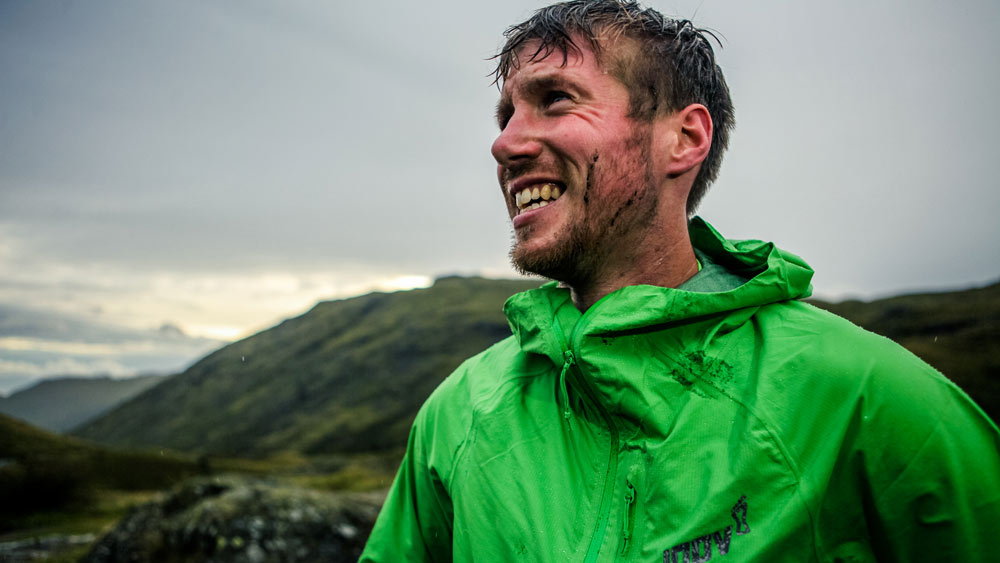
1. The quick list ↴
2. Best overall: On Weather Jacket
3. Best windproof jacket: Nathan Stealth Jacket
4. Best lightweight jacket: Brooks Canopy Jacket
5. Best value: Mountain Warehouse Force Reflective
6. Best waterproof jacket: Gorewear Concurve Jacket
7. Best budget waterproof: Evadict Trail Running Jacket
8. What to look for in a running jacket
Aside from shoes and a running watch, a running jacket is one of the most expensive pieces of running gear you are likely to buy. It’s also one of the most important, especially for winter running or running in the rain if you don’t have a treadmill to jump on when conditions are bad.
While there are good cheap running jackets, quality does usually align with price, and the most expensive tend to offer the most protection while being the most breathable so you don’t overheat. Some runners will find that running in any jacket is too hot, and while I’d wager part of that is because they don’t take their easy runs easy enough, there is value in looking at a running gilet or top instead if that’s the case – these will also be better for fast runs when a full jacket can feel bulky.
How I Test Running Jackets
You can trust Coach
I am a keen runner who normally logs around 70-110km a week and since I live in London, I am rarely short of opportunities to test jackets in the wind and rain. Occasional forays up to Edinburgh’s Pentland Hills to see family also allow me to test jackets on longer, usually wetter trail runs. Along with breathability and protection from the cold, wind and rain, I always focus on a jacket’s storage options.
Should You Get A Waterproof Or Water-Resistant Jacket?
I’ve split up my best running jacket picks based on whether or not they are waterproof, because that’s the key question when buying one. If you opt for full waterproofing the jacket will generally be less breathable and more expensive than one that’s only windproof and water-resistant. At the same time, you won’t care much about breathability if you’re caught in a proper storm in a jacket that offers only token resistance to the rain.
My advice for most road runners would be to opt for a water-resistant jacket first, since they are more comfortable and will keep you dry enough on the vast majority of runs. If you’re a frequent user of remote trails then a fully waterproof jacket is essential, and it’s also worth getting one if you’re a committed runner living somewhere with a rainy climate.
The Quick List
Here you'll find my top picks for the best waterproof and water-resistant jackets and why I rate them so highly. Click on the links to the full reviews below for a more in-depth analysis.
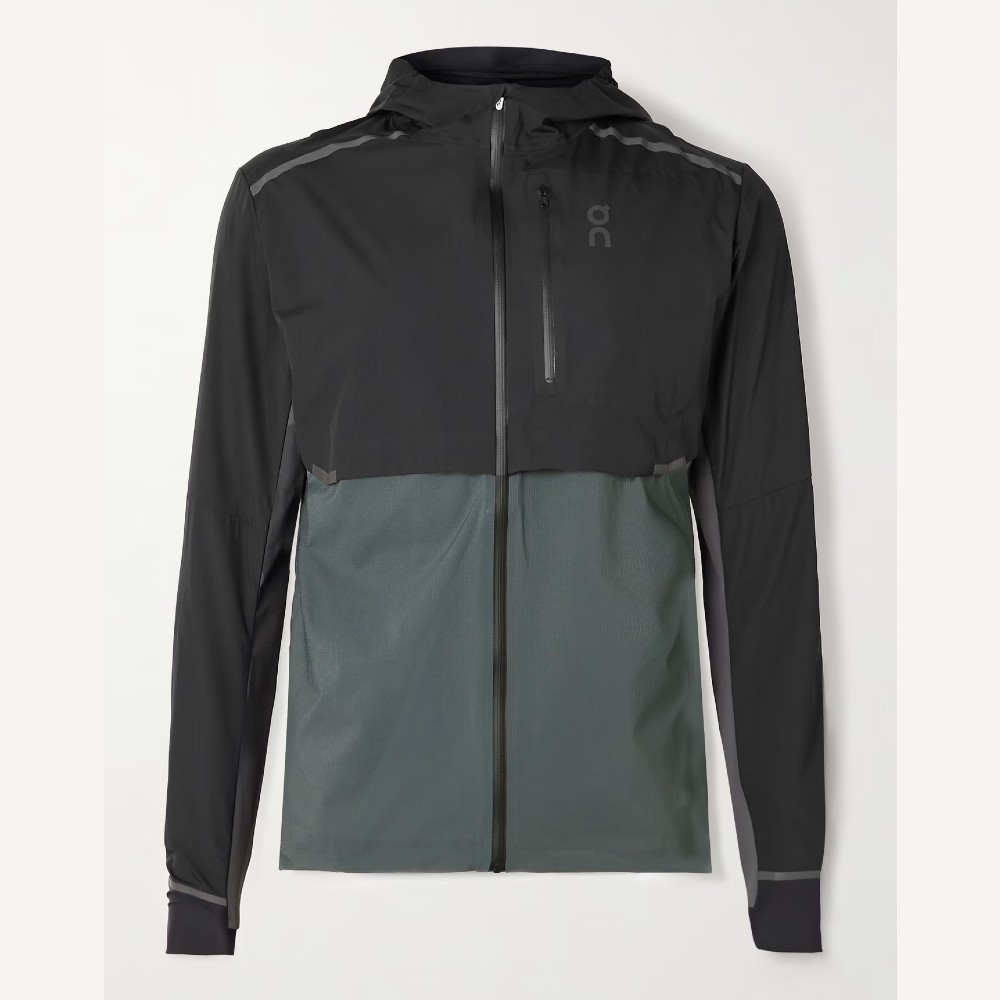
Best overall
This stylish jacket is windproof and water-resistant, so it will keep showers at bay, even if it's not fully waterproof. It’s highly breathable so you can use it for speedy runs in bad weather without overheating. It also packs down into its chest pocket.
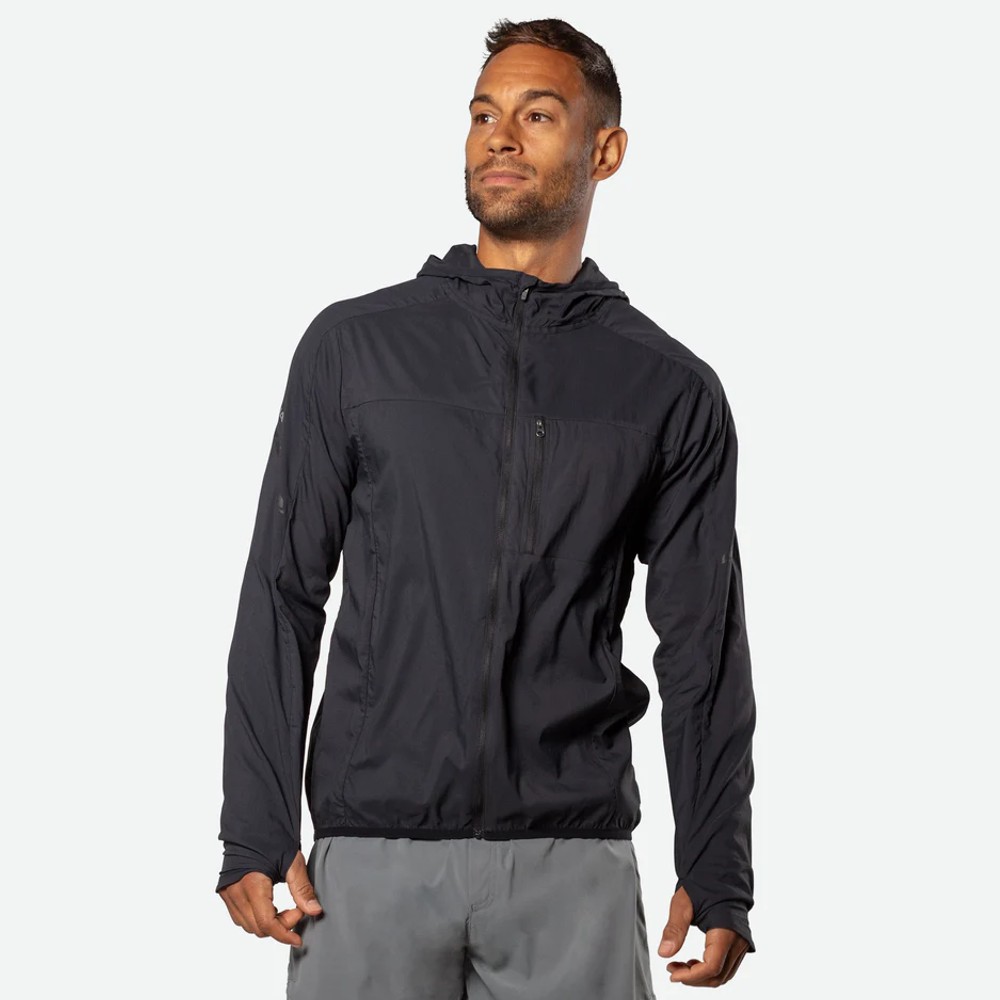
Best windproof jacket
The Stealth Jacket is seriously lightweight and breathable but still shields your torso well on gusty days. It has a water-resistant coating, but this doesn’t keep much rain at bay, so it’s one for windy but dry days.
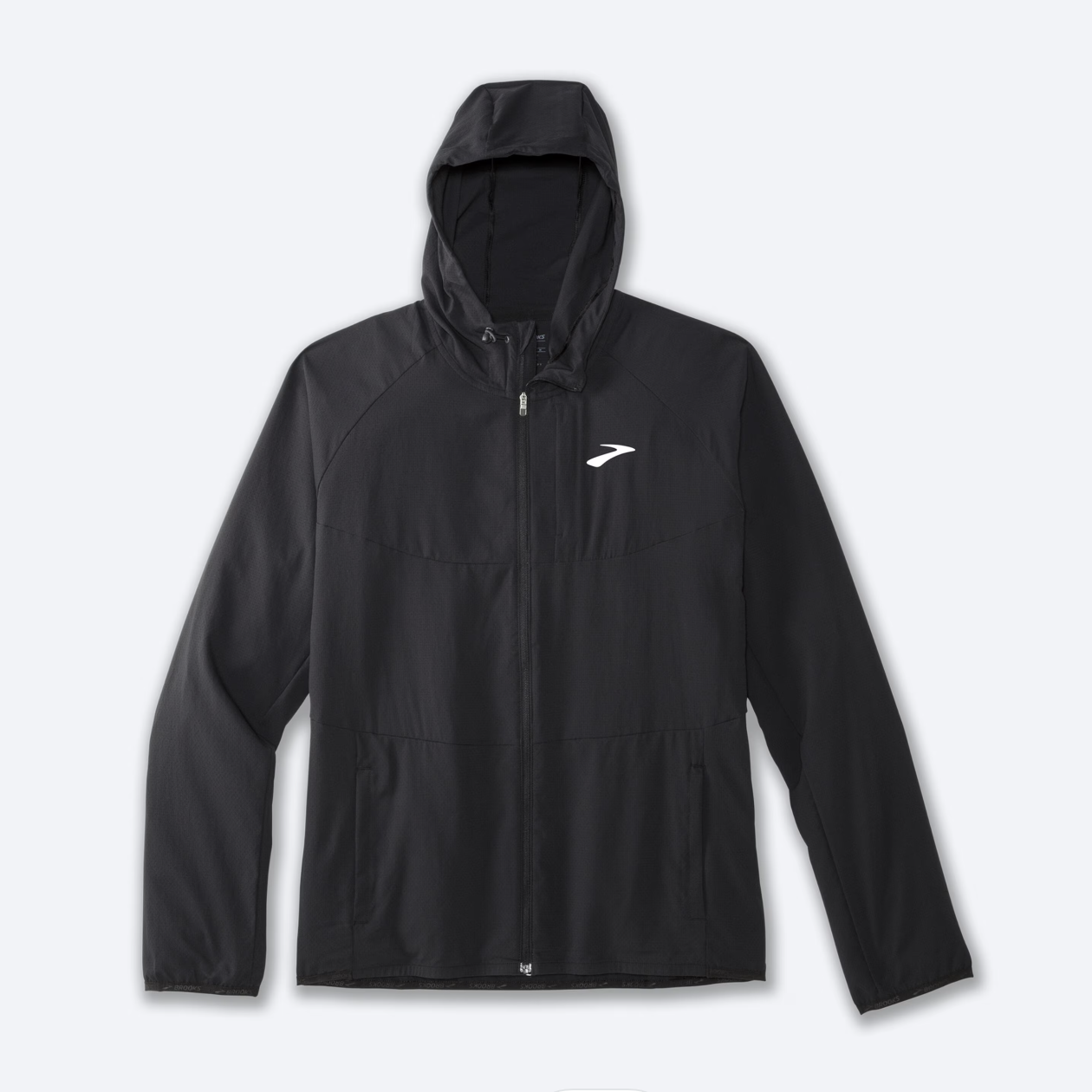
Best lightweight jacket
Another breathable windproof option, the Canopy Jacket packs down into a pouch and has three pockets on it, including a chest pocket for your phone. It’s not the warmest, but it’s perfect for when you’re unsure whether you’ll need a jacket or not.
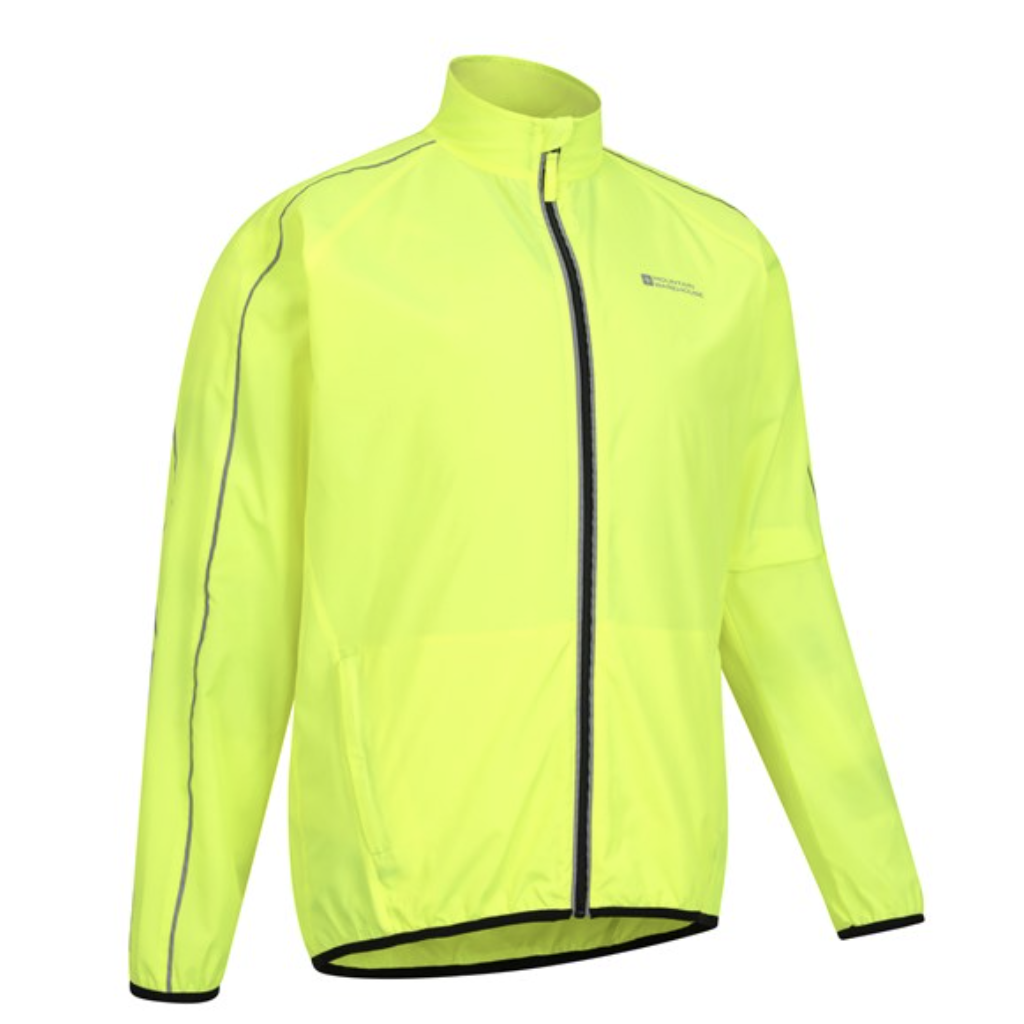
Best value
This lightweight, windproof and water-resistant jacket has an eye-catching design with reflective piping to keep you visible on your runs, and works well for cycling as well as running. It’s great value, especially since it’s often reduced from its RRP.
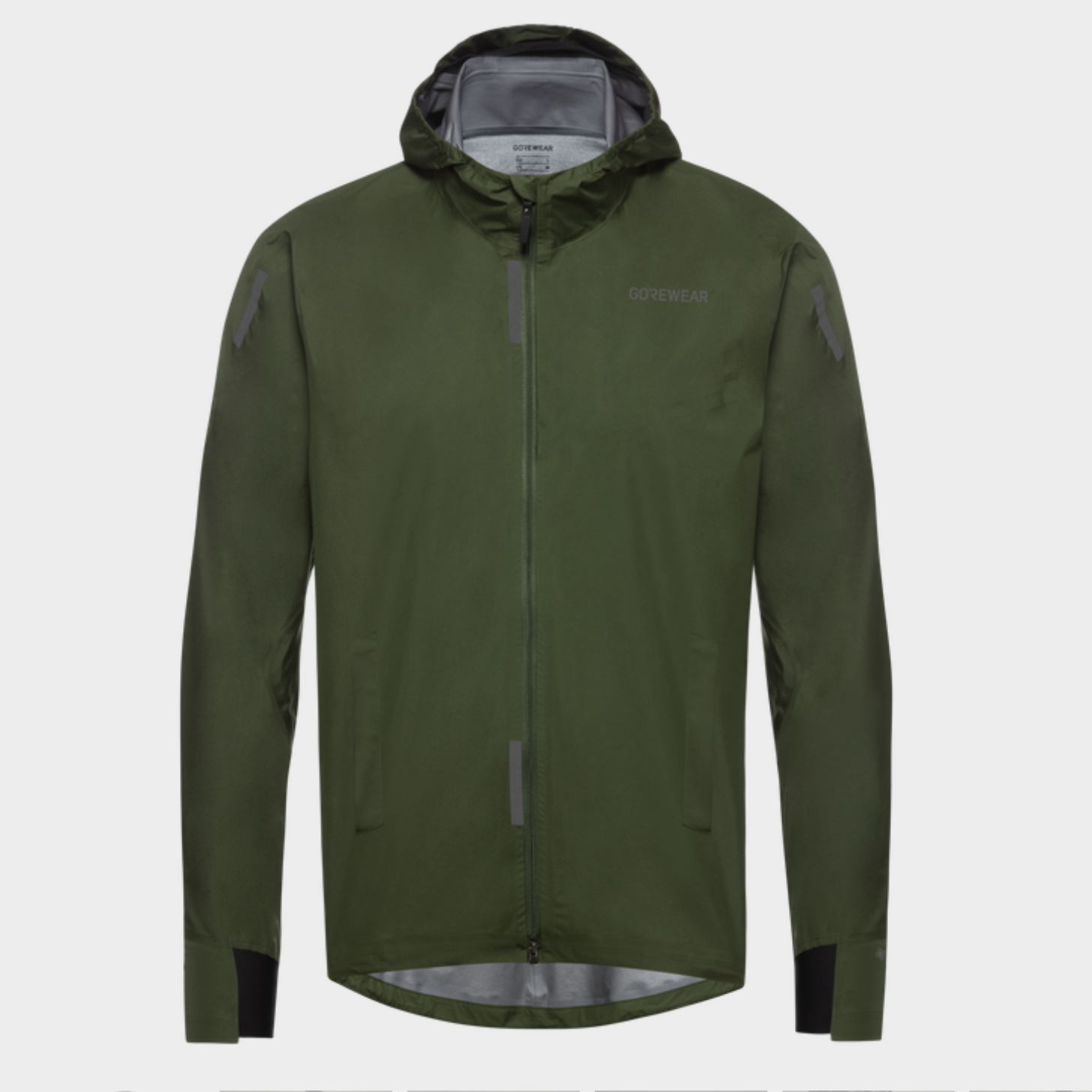
Best waterproof jacket
The lightweight and highly breathable Gorewear Concurve Jacket has the best fit of any waterproof I’ve come across. It’s comfortable and allows for complete freedom of movement on the run.
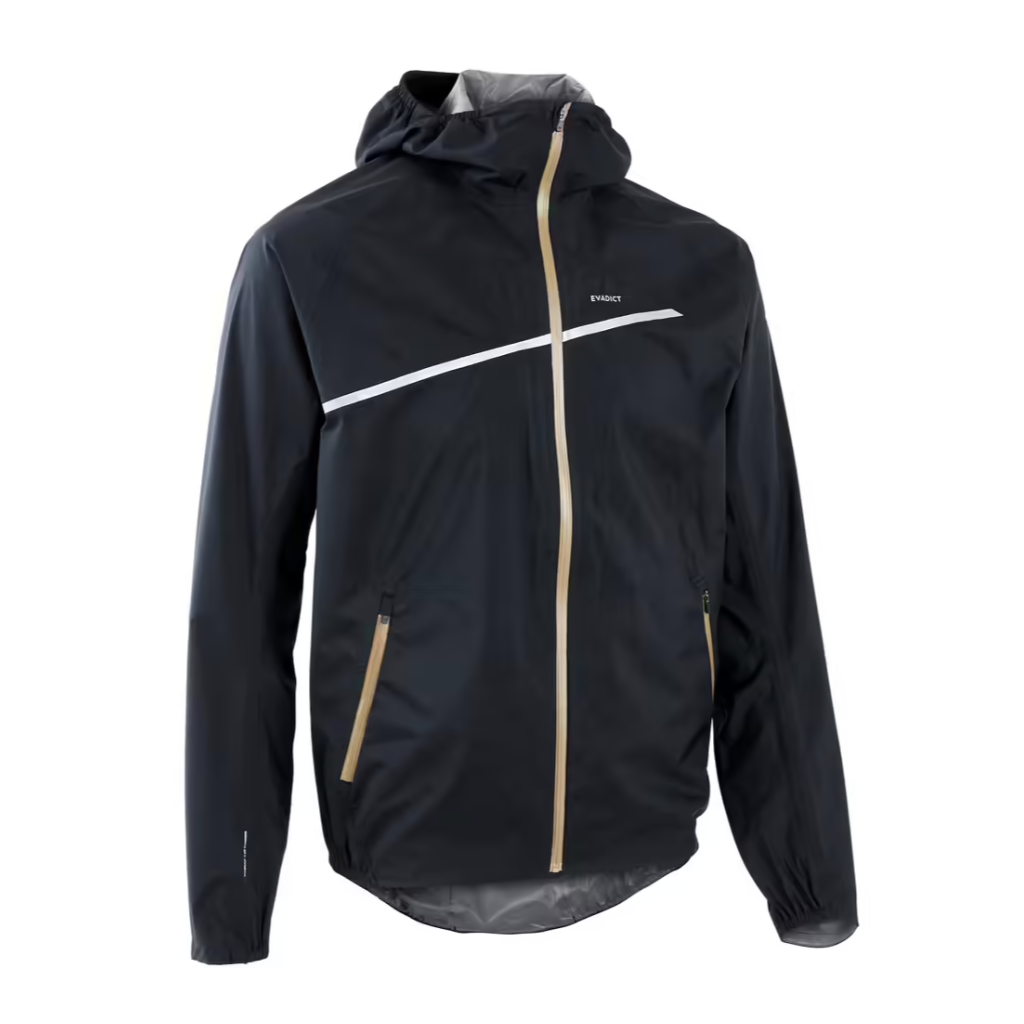
Best budget waterproof
It’s hard to find a cheap, fully waterproof jacket that doesn’t become very hot on the run, but the Evadict Trail Running Waterproof from Decathlon is just that. You can get more breathable options, but they cost a lot more.
The Best Men’s Running Jackets That Aren’t Waterproof
More breathable and less expensive than fully waterproof jackets, these are the best running jackets for everything but a heavy downpour.
Best Overall
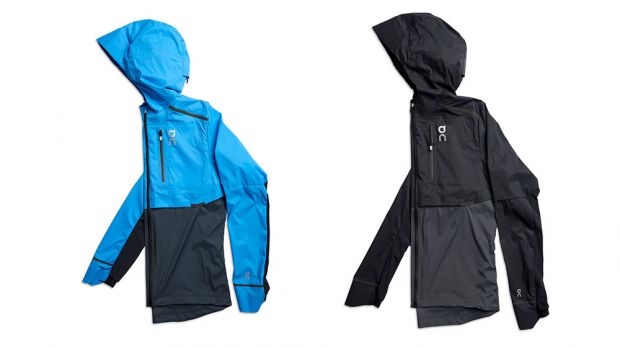
1. On Weather Jacket
Specifications
Reasons to buy
Reasons to avoid
The On jacket comes at a hefty price, but it’s ultra-light and breathable, and I’ve found it to be one of the most comfortable jackets to wear even when pushing the pace in inclement weather. The water-resistant jacket can be packed down into its chest pocket and its hood is more adjustable than most, so you can set it up to fend off the rain without obscuring your vision. While it’s not fully waterproof, this jacket has kept me dry on hour-long rainy runs, and it’s one of the more stylish options to wear when not running too.
Best Windproof Jacket
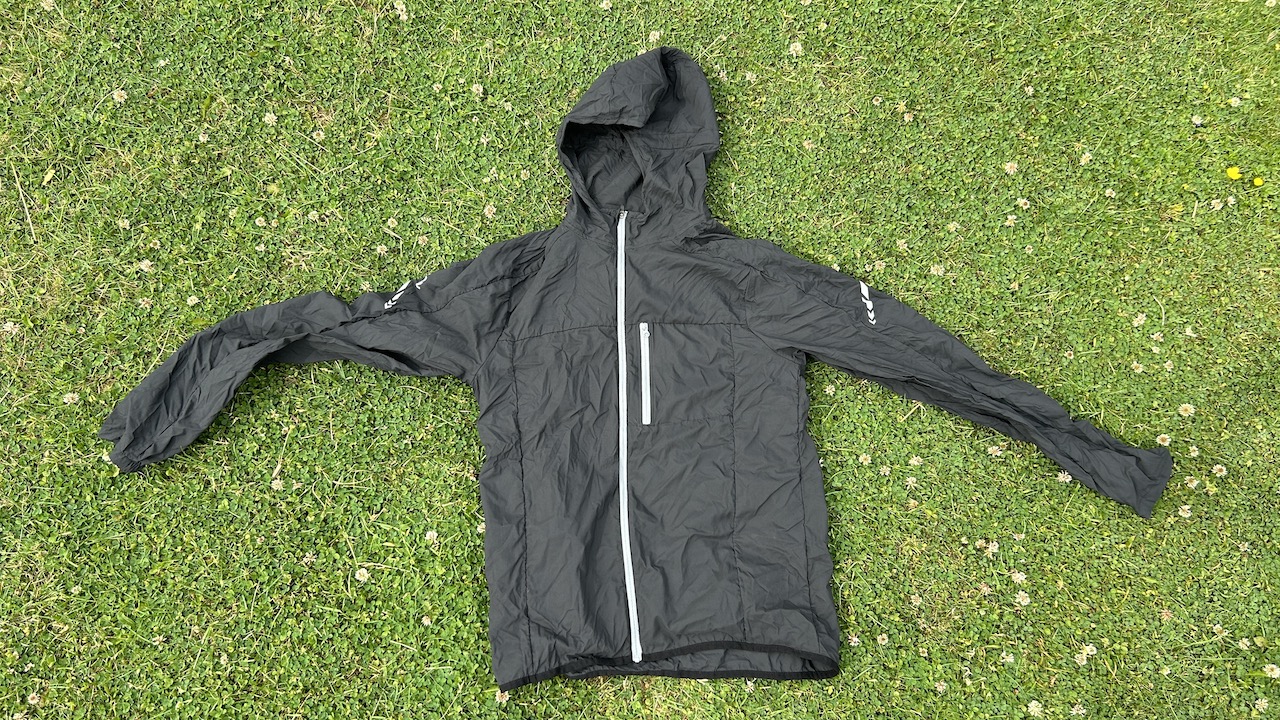
2. Nathan Stealth Jacket
Specifications
Reasons to buy
Reasons to avoid
Thanks to the soft material used, the Stealth jacket lives up to its name by not rustling at all as you run, something I do find annoying at times with other jackets. It’s windproof and has a water-resistant coating, but don’t expect too much protection from rain. Instead the Stealth works best in providing just enough warmth to help get you out of the door on chilly, windy days, and when I found it too hot during runs it was easy to pack it into its pocket while on the move.
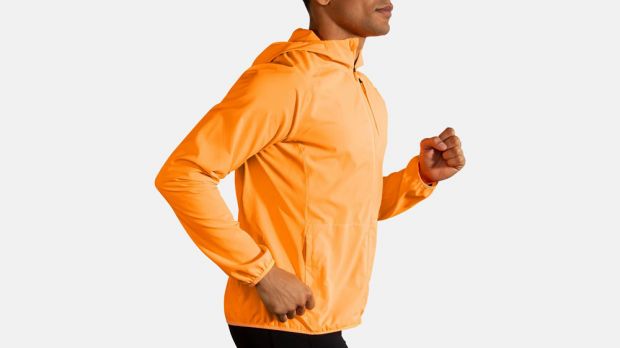
Best Lightweight Jacket
3. Brooks Canopy Jacket
Specifications
Reasons to buy
Reasons to avoid
This is a featherlight jacket that offers a good level of protection from wind and rain to see you through chilly runs without the risk of overheating. The Brooks Canopy has a pouch inside the hood that you can pack it into, enabling you to transport it easily in a rucksack or even a spacious pocket, and you can also roll up and tie the hood in place on runs when you’re not concerned about rain. There are two zip pockets on the sides and one on the chest, with the latter the best option to use on the run because I found that anything stored in the side pockets tended to bounce around.
Best Value
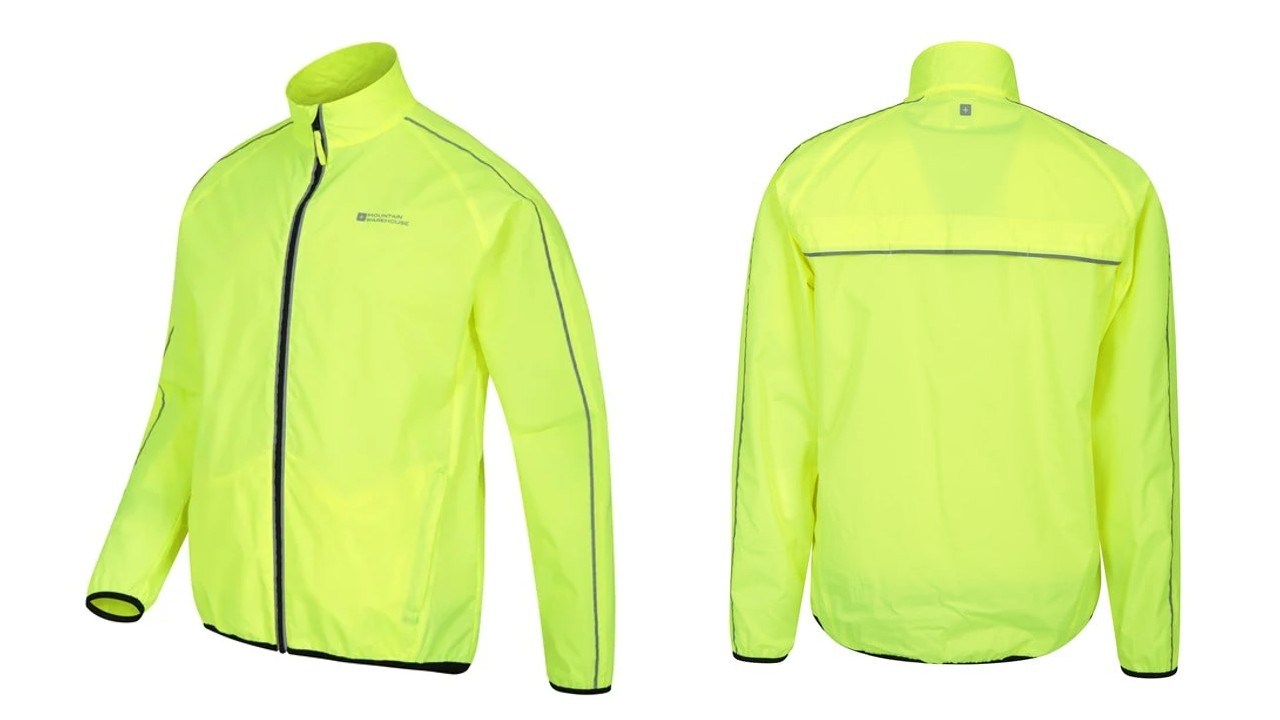
4. Mountain Warehouse Force Reflective
Specifications
Reasons to buy
Reasons to avoid
The Force Reflective jacket is a lightweight and breathable option for runs when you just need a little extra protection from the elements. It’s also great for increasing your visibility, with reflective piping, and the yellow version helps you to stand out in the daytime as well. It’s usually reduced from its UK RRP, putting it firmly in the budget category.
It didn’t keep me dry in serious rain, but the jacket can handle a light shower and will keep the wind off your torso effectively. It also has a long back that makes it suitable for cycling as well as running, and the reflective elements are handy for night-time rides.
More Water-Resistant Jackets
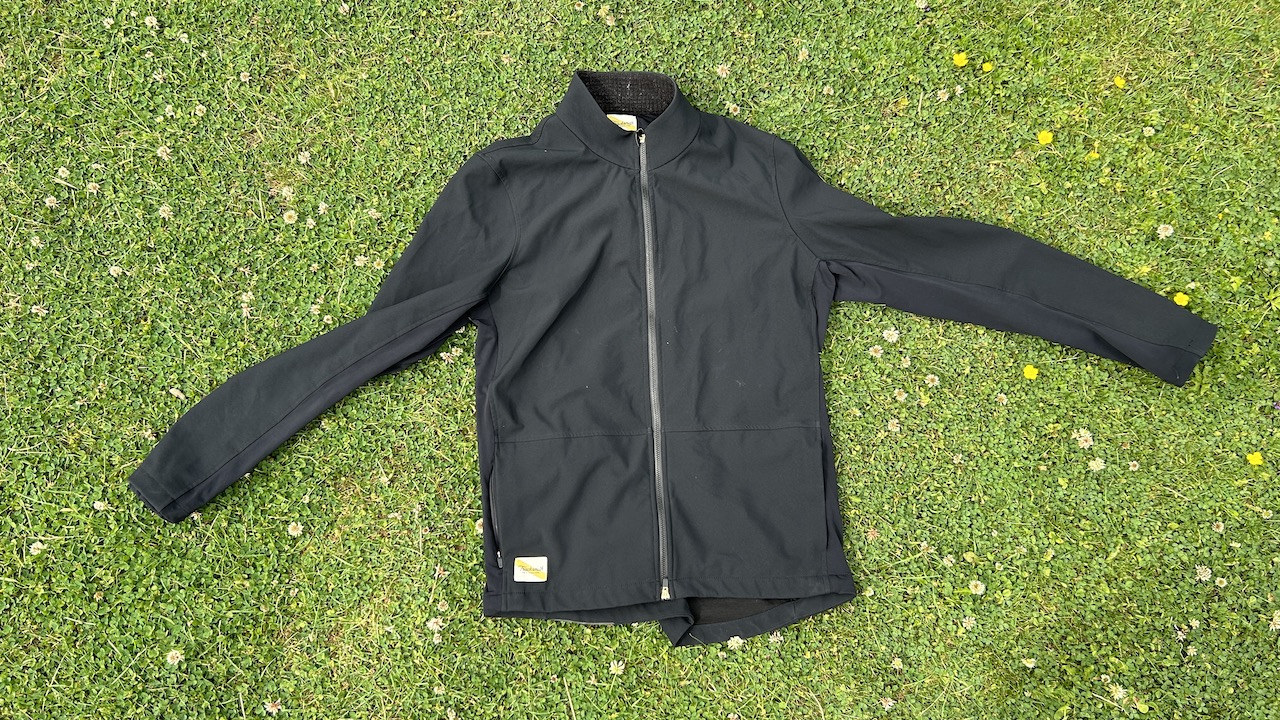
5. Tracksmith NDO Jacket
Specifications
Reasons to buy
Reasons to avoid
The Tracksmith NDO Jacket is breathable yet still warm, windproof and highly water-resistant. The loose fit meant I could pack in other layers beneath it when it was really cold, and its variety of useful pockets include an internal chest pouch ideal for a phone.
A handy feature is that the zip works from both top and bottom, so when I was feeling warm I could open the jacket in both directions to cool off, and there’s a large reflective sash on the back to increase visibility.
The stylish design also sets the NDO Jacket apart, since you can wear it outside of runs as well as during them to help make you feel a little better about the high cost. I basically used it as my only jacket for runs and general use for a couple of weeks, so it's lucky it resists odours like a champ.
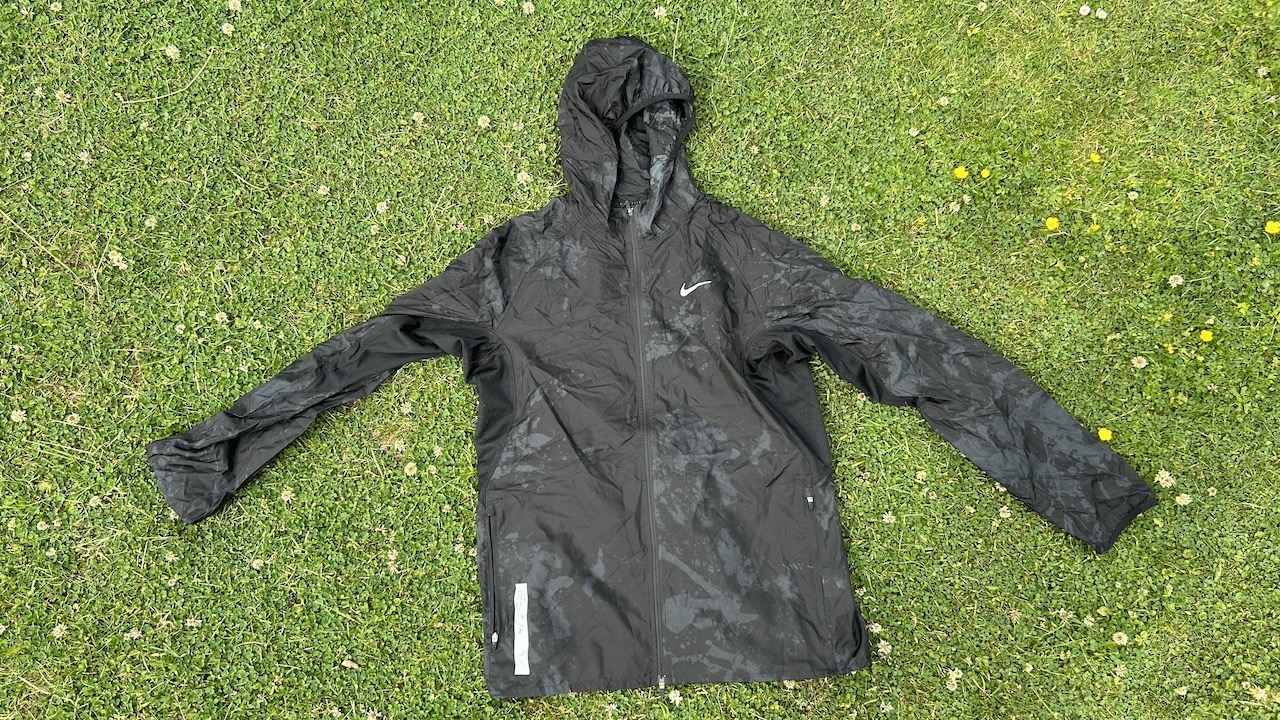
6. Nike Repel Run Division
Specifications
Reasons to buy
Reasons to avoid
This jacket has a good balance of breathability and water resistance, using a water-repellent fabric to keep showers at bay. Its side pockets are handy whether you’re running or not, while it also has large reflective strips to increase visibility and a hood you can tighten so it doesn’t flap around your head.
I did find the jacket quite baggy in my normal size, and even if sizing down you can expect some loose fabric that catches the wind during runs. It packs down easily into its back pocket, which has a long strap so you can wear the jacket as a shoulder or waist bag. When packed it’s quite large compared with other options, but the strap does make it easy to carry.
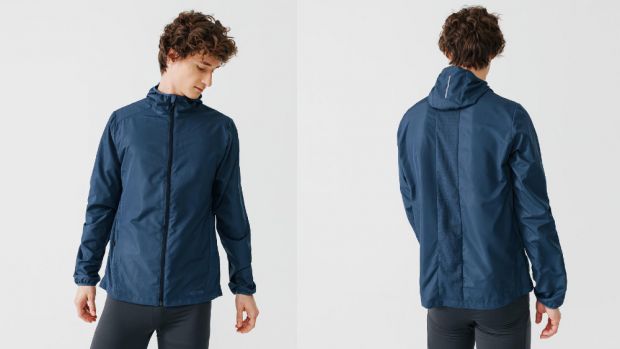
7. Kalenji Run Wind
Specifications
Reasons to buy
Reasons to avoid
Those looking for a cheap and cheerful extra layer will find it in the Kalenji Run Wind, which doesn’t offer any water resistance but will keep the wind out and breathes well so you won’t overheat. The thin material left me slightly cold on easy runs when it was very chilly, but the Run Wind is a good pick for in-between days when you could overheat with a thicker jacket.
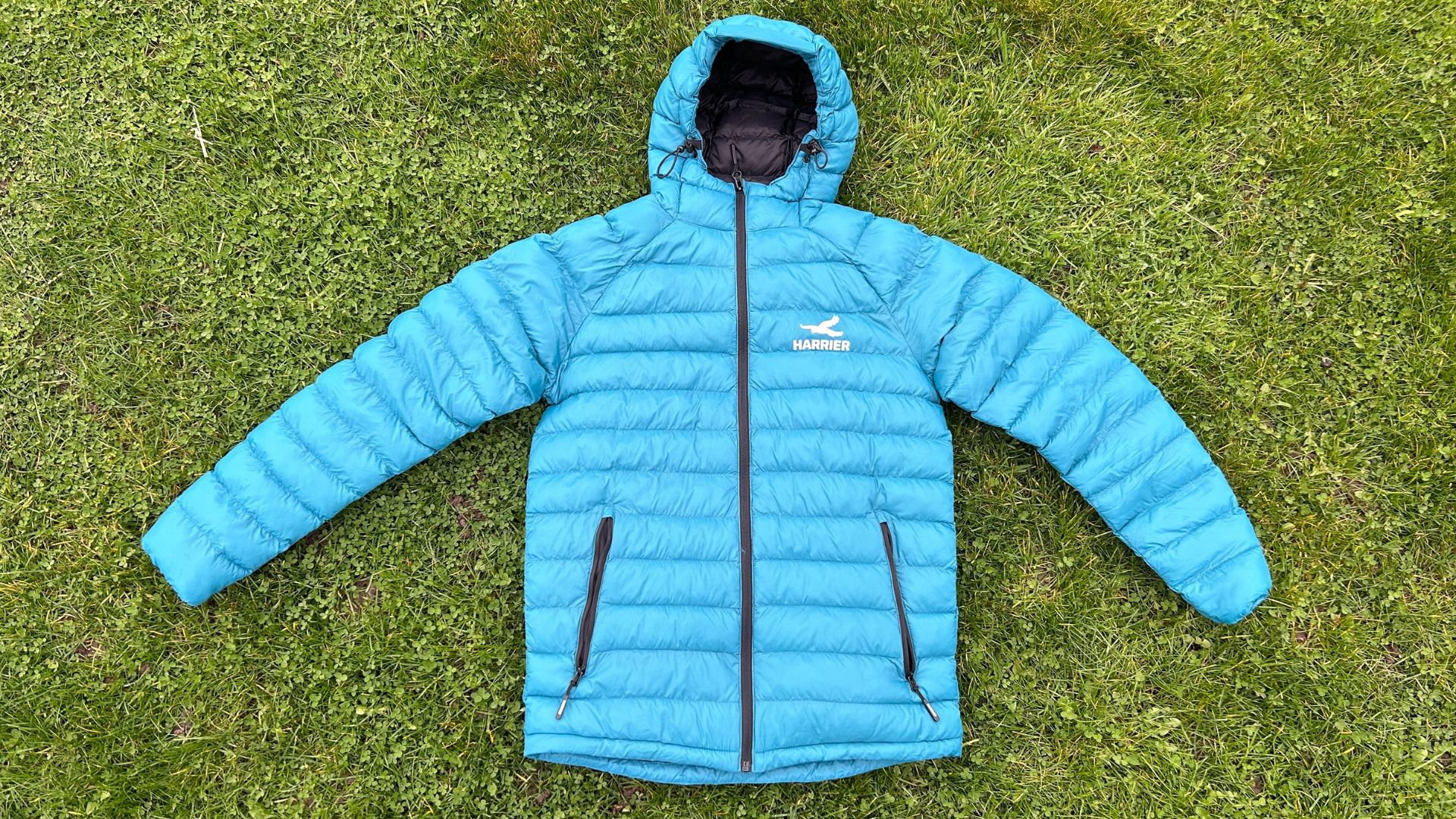
8. Harrier Lomond
Specifications
Reasons to buy
Reasons to avoid
The Harrier Lomond is an insulated jacket that’s built to be extremely warm, and as a result it’s only going to work well for certain runners regularly tackling training in sub-zero conditions. For most of my testing it was too warm to use for anything beyond short and very easy runs, though it does offer more versatility for general use than most running jackets because it’s so warm.
When the conditions suit it, however, the Lomond is warmer than other jackets, and it’s also excellent value and quite packable—you can shove into the provided stuff sack to put in a rucksack, though it’s still quite large when packed. If you are regularly running up and down mountains, or doing very long trail runs where you’ll have long spells moving at slow paces in cold conditions, the extra insulation you get from the Harrier Lomond will be invaluable.
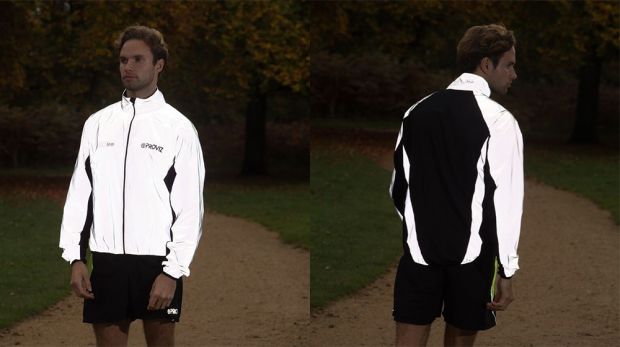
9. Proviz REFLECT360 Running Jacket
Specifications
Reasons to buy
Reasons to avoid
Proviz’s reflective cycling jacket is a common sight on cyclists in winter, but runners can benefit just as much from wearing a top made from the same fabric to ensure other road and pavement users spot them at night. The front of this jacket is made entirely from reflective fabric, which also covers the arms and some of the back for 360° visibility. The rest of the back and arms is made of a breathable mesh to help you avoid overheating, but I still found it was warmer than most other water-resistant jackets, so a Proviz top or gilet might work better for milder night runs.
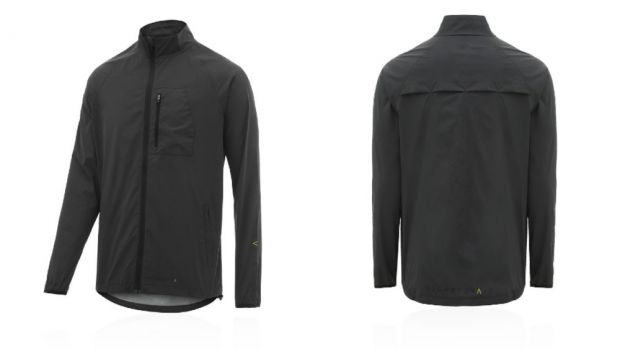
10. Higher State All Over Reflect Jacket
Specifications
Reasons to buy
Reasons to avoid
If reflectivity is what you’re after, this jacket offers it in spades and it does so at a great price (ignore the RRP because Higher State’s range is invariably reduced on Sports Shoes). The jacket offers all-over reflectivity, and it’s windproof and highly water-resistant – in fact it’s essentially waterproof in my experience. The drawback of this is that it gets pretty hot and I only found it comfortable to use for very easy runs, along with warm-ups and warm-downs.
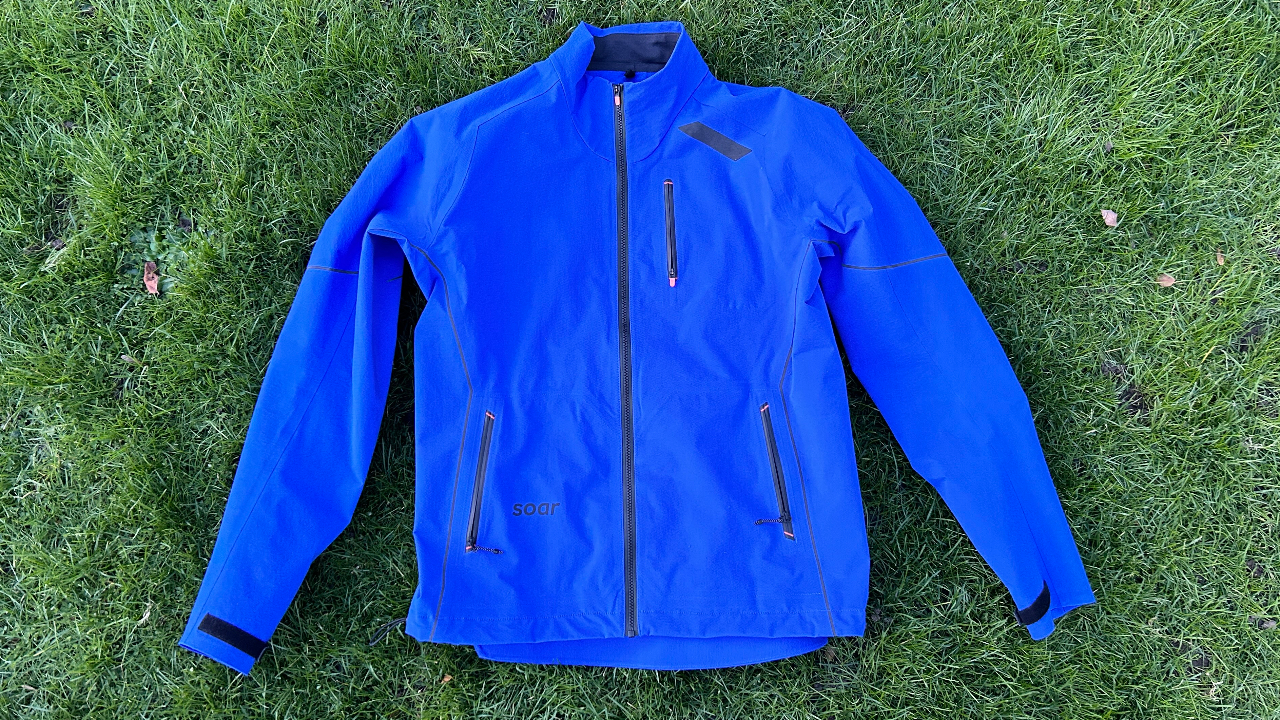
11. Soar All Weather Jacket
Specifications
Reasons to buy
Reasons to avoid
For the previous three winters I ran in an older version of the Soar All Weather Jacket. I’ve been testing the latest version this year and while the price is high, it’s an incredible piece of clothing that’s unlike any other jacket I’ve tested. The main reason is the STORM2 fabric: This is highly water-resistant—to the point where I’ve run for hours in the rain without getting wet—but not fully waterproof, so the jacket remains breathable.
The result is a warm jacket that keeps the wind and rain mostly at bay. I’ve worn this jacket for almost every run I’ve done in the past month, from two-hour slow trail runs in freezing conditions to hard track sessions. It’s always been comfortable and kept me dry, and at the right temperature.
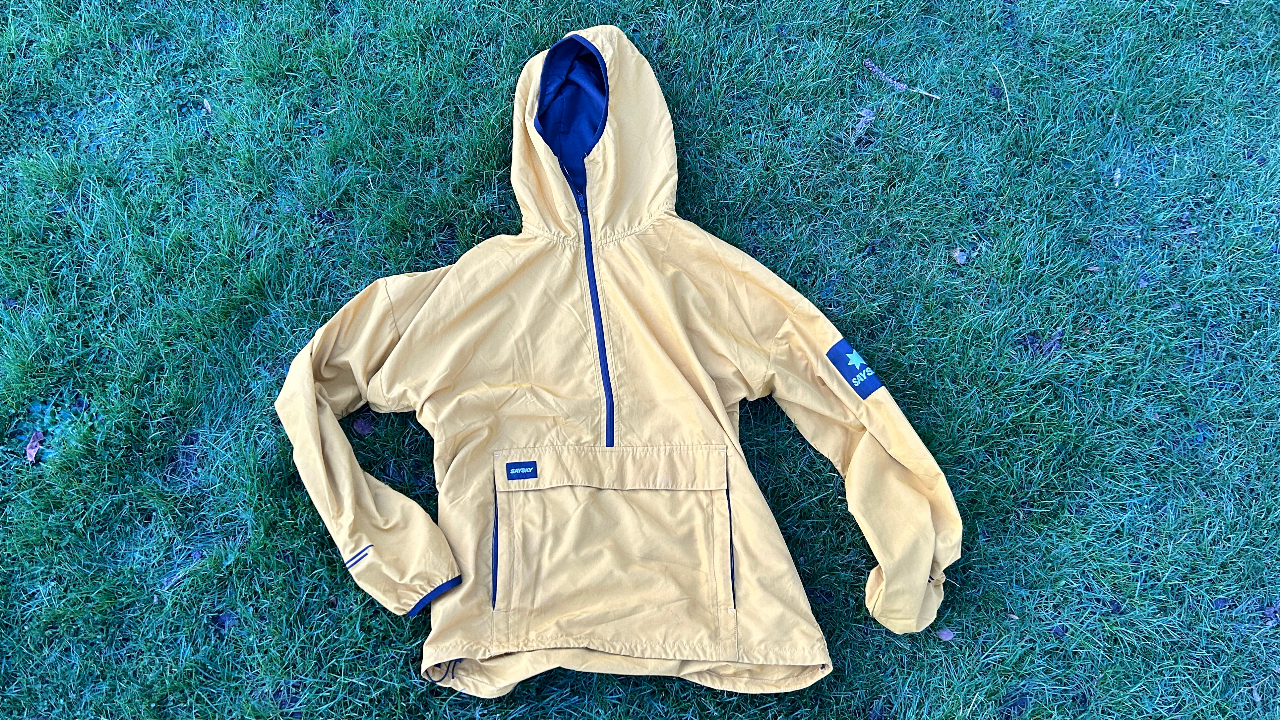
12. Saysky Pace Anorak
Specifications
Reasons to buy
Reasons to avoid
I wore this anorak as much when not running as I did when I was out testing kit because it’s more stylish than most of my non-running gear. That versatility is a plus, but the Pace Anorak makes this list because it provides plenty of warmth and protection from the wind. Don’t expect a lot of protection in the rain, though—it will only fend off the lightest of showers.
The baggy design, while comfortable, also means that the anorak is a bit flappy if you’re pushing beyond easy paces. Keep it for relaxed runs, especially since you don’t want to sweat in it so much you can’t wear it out on the town afterwards.
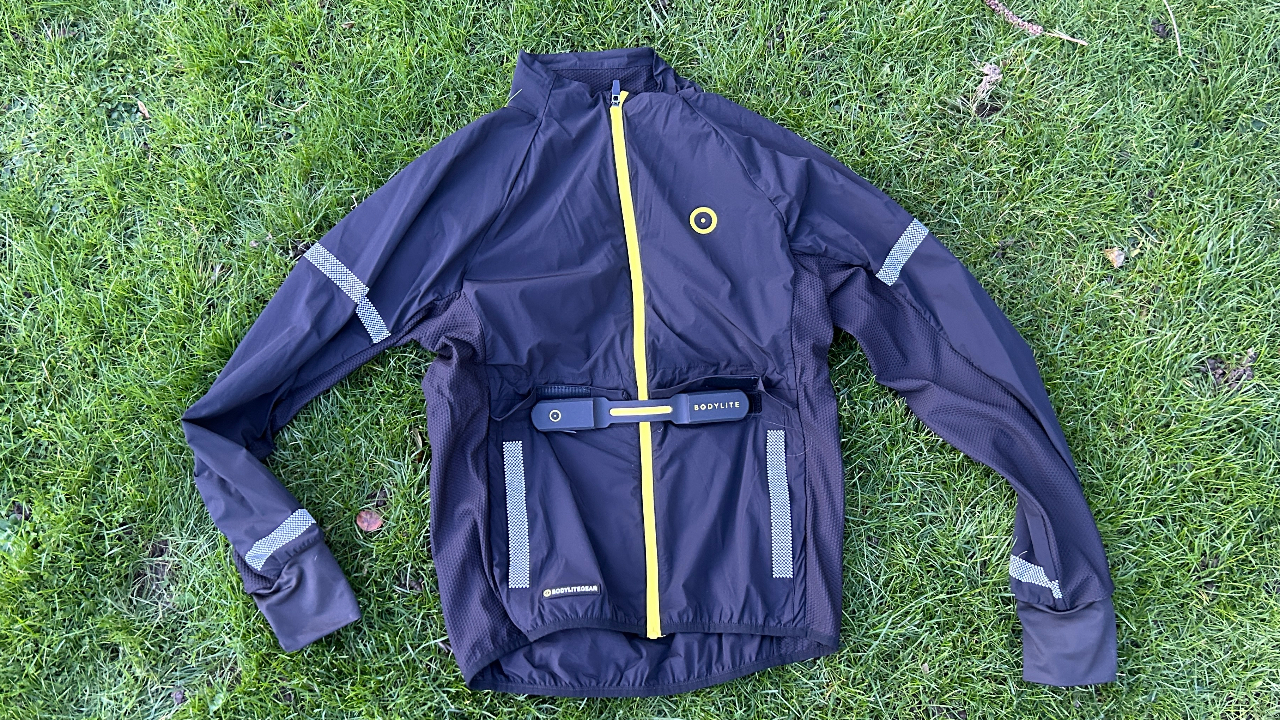
13. Bodylite NightVision Jacket
Specifications
Reasons to buy
Reasons to avoid
The NightVision Jacket is compatible with the Bodylite NightVision Light ($42.50/£34.50), which can be attached to the Velcro strips on either the front or back of the jacket. The light is bright, has flashing and steady modes, and can be set to white or red light and, in addition to the reflective strips on the jacket, it helps make you as visible as possible on night runs.
I found the jacket a great lightweight option for daytime runs, with the vented design and the fact that only the body of the jacket is water-resistant meaning it’s highly breathable. You don’t get as much protection from rain and wind as with other jackets as a result, so in really cold conditions I prefer a heavier jacket, but if you run hot the extra breathability will be a boon.
The Best Men’s Waterproof Running Jackets
For full waterproof protection you'll need one of these jackets.
Best Waterproof Jacket
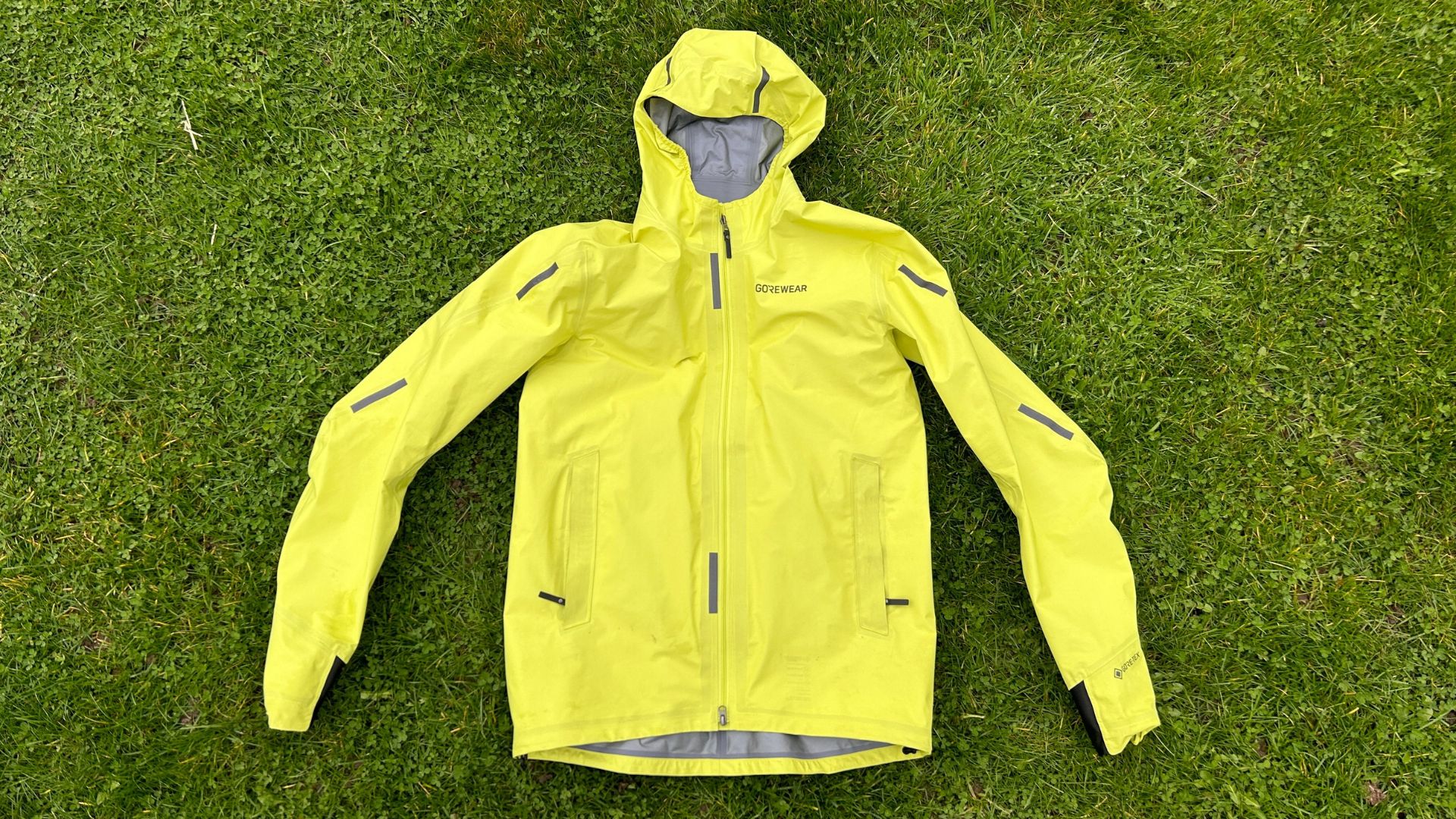
1. Gorewear Concurve Jacket
Specifications
Reasons to buy
Reasons to avoid
The standout feature of the Gore Concurve Jacket is its fit, which allows for unrestricted movement running at any pace. I used the jacket for speedy track sessions and long runs up to 24 miles, and it is a cut above most rivals on the comfort it offers thanks to its slim but unrestrictive fit.
It’s also completely waterproof and windproof, and exceptionally breathable while still being warm, allowing for great body temperature regulation on long and hard runs. Whether I was tackling fast reps in mild but rainy weather, or doing long runs in dry but freezing conditions, the jacket helped to keep me at the right temperature with just a base layer underneath.
The only mild criticisms I have are that it doesn’t have a chest pocket for a phone, which I like on a waterproof jacket, and the softer fabric on the inside of the wrists takes a while to dry once wet, especially compared to the rest of the jacket which you can pretty much shake dry.
Best Budget Waterproof
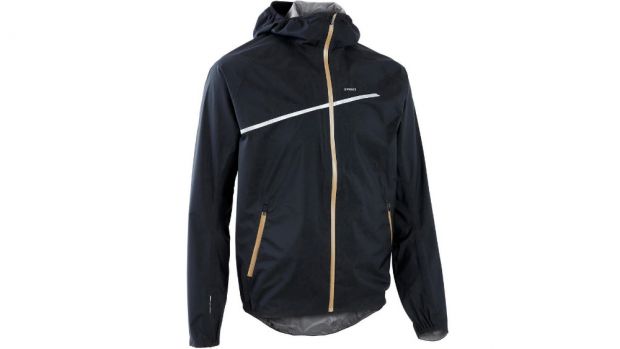
2. Evadict Trail Running Waterproof Jacket
Specifications
Reasons to buy
Reasons to avoid
This jacket has a high waterproof rating of 10,000 and taped seams, which means it hits the standards required on mandatory kit lists for most trail ultramarathons. That’s rare to find on a jacket that costs well under £100, and it’s even more unusual to find it in a jacket that doesn’t become uncomfortably hot as a result. It breathes well and I found it wasn’t too warm to wear on milder days, though I recommend wearing a long-sleeved top underneath because it can stick to the skin as you start to work up a sweat on your run.
More Waterproof Jackets
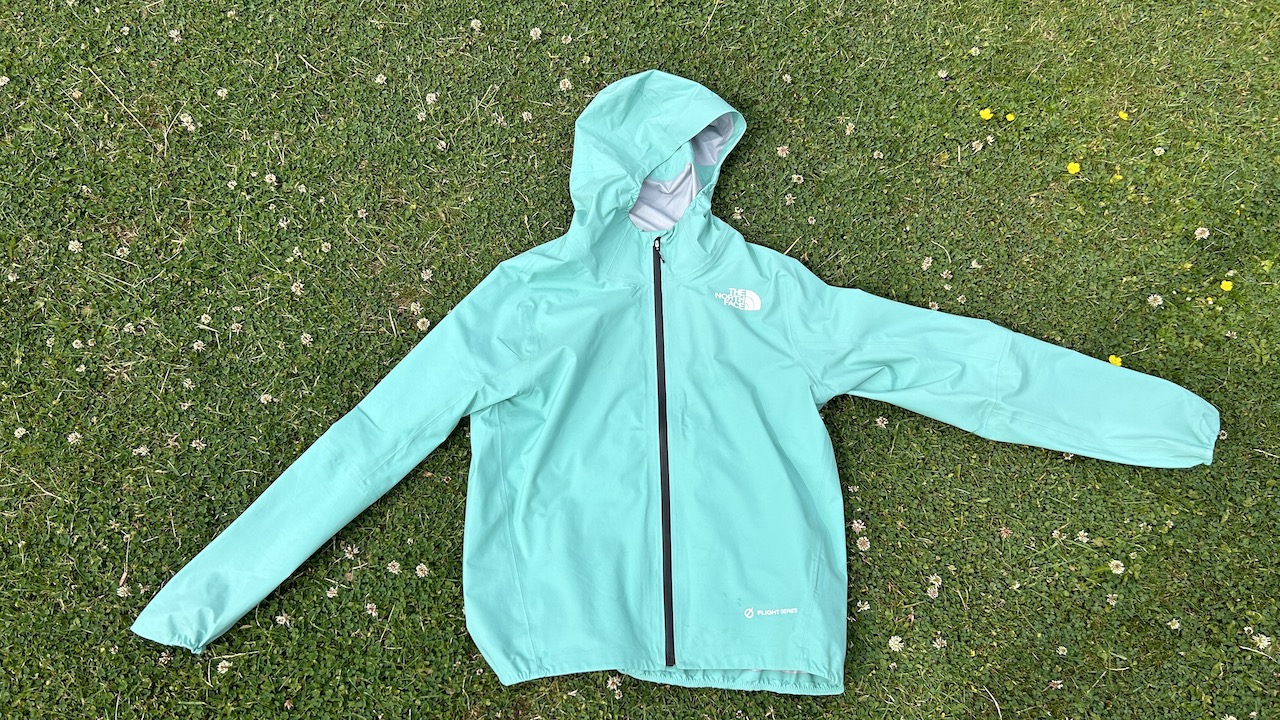
3. The North Face Lightriser Futurelight Jacket
Specifications
Reasons to buy
Reasons to avoid
The North Face’s Futurelight fabric is the real deal, in that it’s among the most breathable waterproof materials I’ve come across in a running jacket. As a result, the Lightriser is a fantastic lightweight option, providing reliable and long-lasting protection from precipitation without creating an uncomfortable amount of perspiration. On dry days in low double-digit temperatures it also proved effective at keeping the wind off without causing me to overheat, and even when the temperature dropped to just above zero the jacket was still warm enough with just a base layer underneath.
Although it scores highly on the running jacket’s key feature—keeping you dry and warm without being too hot or sweaty—it could improve its storage options. The only pocket is an internal one at the small of your back, and it’s mainly useful for packing the jacket into rather than carrying anything—a chest pocket for a phone would be a great addition.
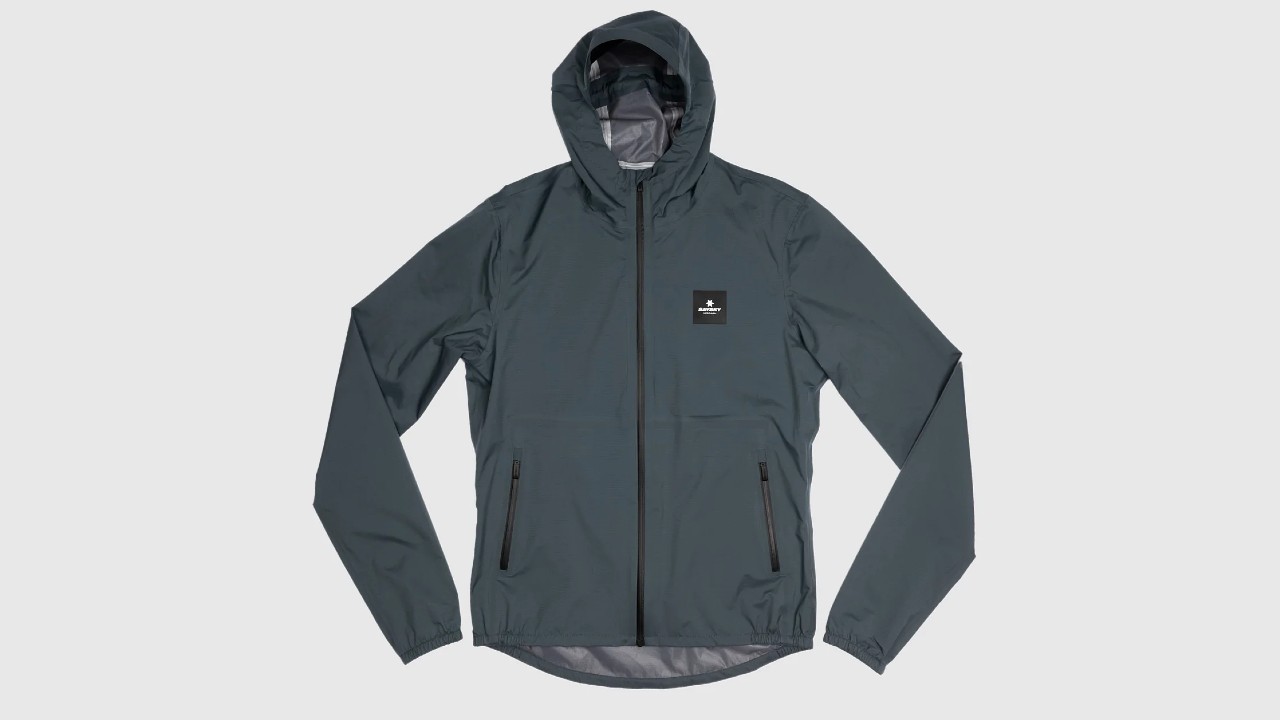
4. Saysky Element 3L Waterproof
Specifications
Reasons to buy
Reasons to avoid
During testing I found the Saysky Element jacket a good option for wet days whether I was running or not, the close cut and simple design meaning it’s stylish enough to wear at any time. The back of the jacket is ventilated to stop you overheating, and there are two pockets on the sides, though I found putting anything too heavy in these would lead to bouncing.
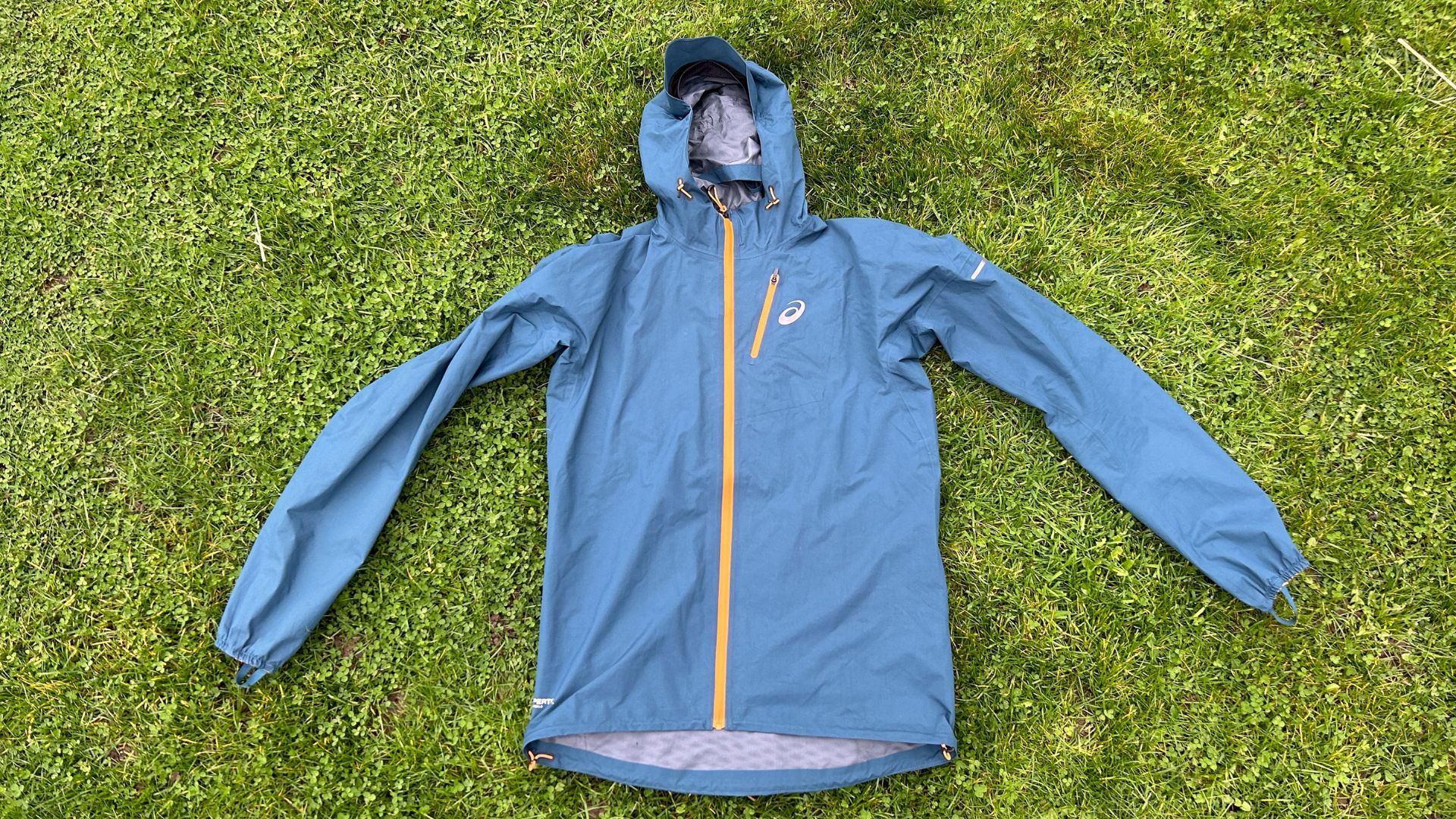
5. Asics Fujitrail Waterproof
Specifications
Reasons to buy
Reasons to avoid
This lightweight jacket packs down into its chest pocket to make it easily portable in a running backpack, or even a running belt or shorts with big pockets. It’s fully waterproof thanks to the Pertex Shield fabric, and has a close fit that allows for free movement on the run. It also has a useful chest pocket that can store your phone in wet conditions.
While it’s fairly breathable, I did find that the Asics Fujitrail jacket gets hotter than others on this list during runs, though it does come in slightly cheaper than top options like the Gorewear Concurve or The North Face Lightriser Futurelight.
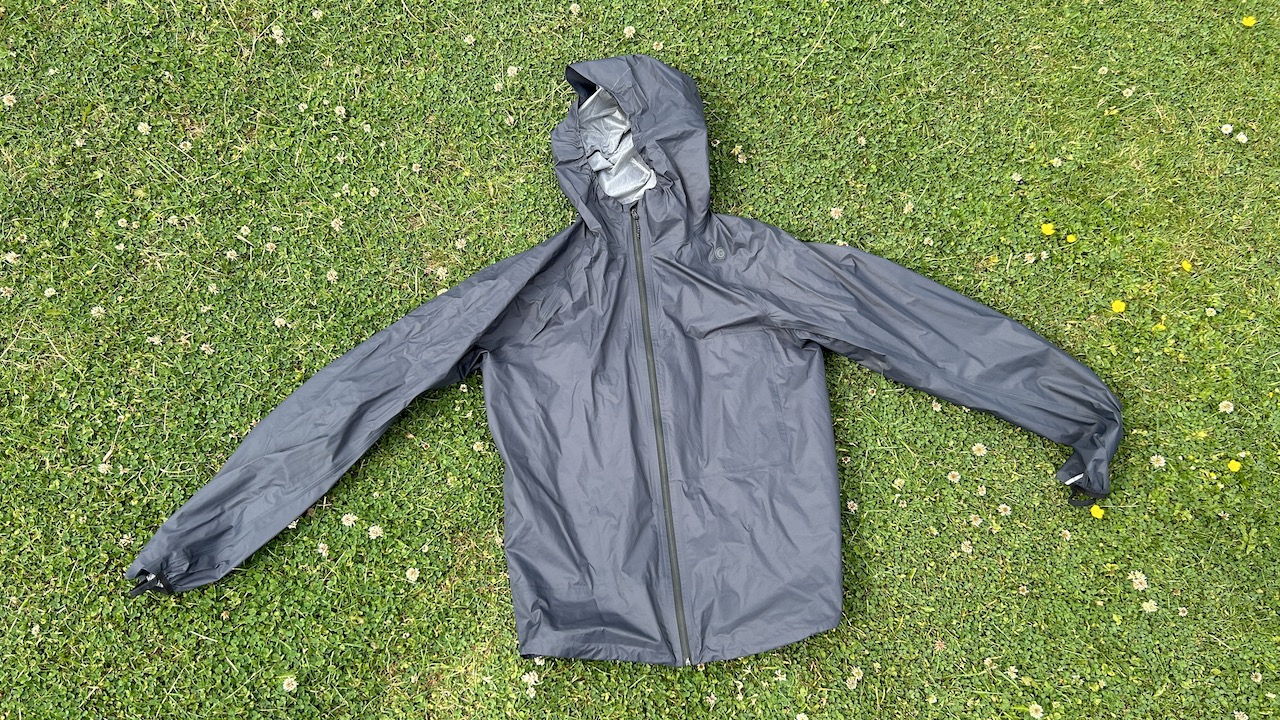
6. Ciele Elite FLRJacket
Specifications
Reasons to buy
Reasons to avoid
The Ciele Elite waterproof jacket is as breathable as they come and has several useful features, such as a carabiner to clip it to a running backpack or belt when it's packed into the chest pocket. All the pockets on the jacket are internal to help keep your stuff dry, and there’s a snap button on the chest I found handy since I could unzip to cool down while keeping the jacket in place.
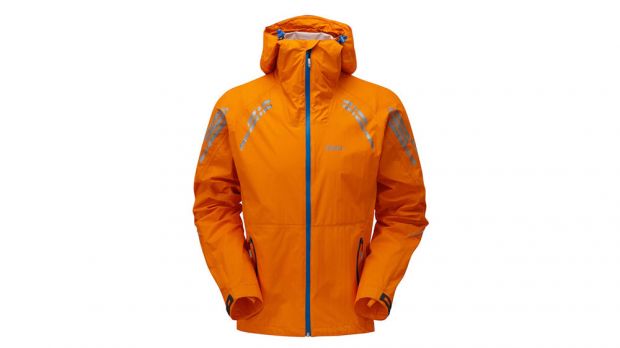
7. Keela Saxon Jacket
Specifications
Reasons to buy
Reasons to avoid
A good option for runners who cycle, or indeed cyclists who run, the Keela Saxon has a high neck and an adjustable peaked hood that will fit over helmets, and a curved rear hem that’s longer at the back to keep your rear end dry. While breathable, I found it a fairly warm option for running – it might get a bit sweaty in mild and wet conditions, but it’s great for winter.
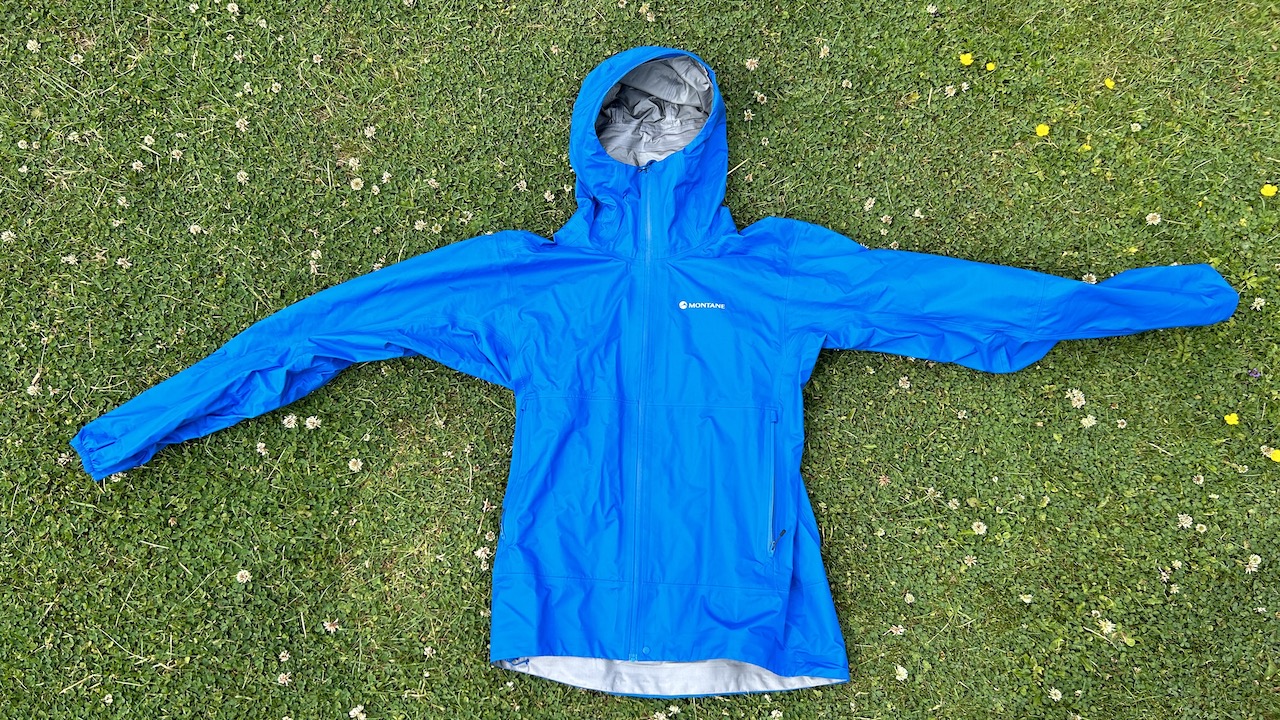
8. Montane Phase Nano Jacket
Specifications
Reasons to buy
Reasons to avoid
The Phase Nano jacket is astonishingly breathable given that it has a Gore-Tex liner and is fully waterproof. I’ve been able to use it on fairly mild and dry days without finding that it made me uncomfortably sweaty, even throwing it on after a hard track session for a long warm down without it being too hot. The side pockets are useful but only for lighter items, since heavier ones will bounce around on the run, and I did long for a chest pocket for my phone, but otherwise the Phase Nano is as good as waterproof jackets get, which you’d expect given the high price.
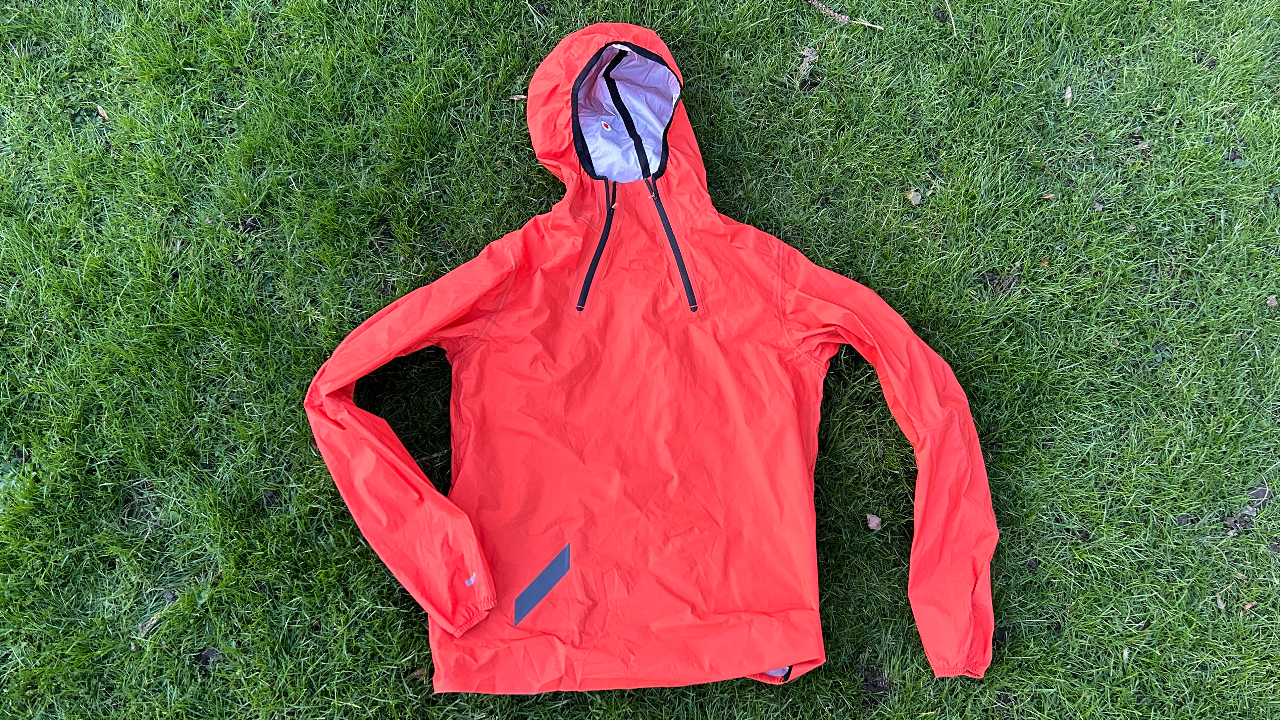
9. Soar Trail Rain Jacket
Specifications
Reasons to buy
Reasons to avoid
The Soar Trail Rain Jacket is designed to meet race regulations for trail events while being as lightweight and packable as possible. It has a fitted design that allows you to move freely at high speeds, something I tested by wearing it for a track session running 400m reps in heavy rain.
There are clever touches all over the jacket that reveal the thought that has gone into its design, from abrasion-resistant fabric that won’t wear down from rubbing against a backpack to the dual-zip system that allows for more ventilation under chest straps. The jacket packs easily into an internal pocket and is breathable for a waterproof jacket too.
What To Look For In A Running Jacket
For a deep dive into running jackets and the magical materials used to make them waterproof while still being breathable, we spoke to Matt Kemp, design manager at British outdoor brand Montane.
What’s the difference between waterproof, water resistant and windproof jackets?
Waterproof refers to the fabric’s ability to resist penetration of water. It’s creating a barrier between the elements and yourself.
Water resistant resists the penetration of water at low levels – it’s enough for light drizzle – but water will get through if pressure is applied to the fabric, for instance by a backpack strap.
Windproof is the fabric’s ability to resist the penetration of air. It can be done through the construction of the fabric or it can be achieved through applying a windproof membrane or coating to the fabric.
What are hydrostatic head ratings for waterproofing?
Fabrics are tested to see if they meet certain standards of waterproofing, and the test method that’s used is a hydrostatic head test. It’s a measure of the fabric’s resistance to penetration of water. You set up the fabric on a hydrostatic head, then you apply a volume of water under pressure to the fabric. When the water penetrates the fabric for the first time, you take your measure of the volume of water in millimetres.
What hydrostatic head rating should you look for?
The higher the hydrostatic head rating the harder it is for water to penetrate the fabric. A 10,000mm rating is good and meets all current race criteria, but 20,000mm will resist higher pressures in tougher conditions for longer.
How do you create a waterproof fabric?
There are a couple of ways that you can create a waterproof fabric. A waterproof fabric can be created using a coating. The downsides are it is not as soft as other methods, and harder to make it as breathable. Montane limits the use of this technique to jackets designed for slower-paced activities.
The second is using a membrane. That’s the preferred option for us. Applying a membrane to the fabric can be done in a number of ways. You can have a two-layer fabric, where you have a face [outer] fabric and then the membrane is simply bonded to the back of that. With those garments, you tend to have a drop liner or something inside the jacket to protect the membrane.
You can also have a 2.5-layer laminate, where you have a face fabric, a membrane bonded to the face fabric, and then you have a print to protect the membrane and lift it off the skin. Our Minimus jacket has that construction.
The third option is three-layer which adds an inner layer. This is probably your most durable construction, because you’re fully protecting that membrane.
How long will a waterproof jacket last?
A good-quality waterproof jacket with a membrane construction should last a long time. It’s hard to give a specific time frame because it depends on use.
One of the big misconceptions that people have with waterproof jackets is when they see their jacket looks very wet and the water is not beading off like it did when new, they think the jacket’s not waterproof anymore. It’s not just a visual thing – the jacket can also feel a little bit more clammy, a bit heavier, and bit colder to wear.
This is the jacket “wetting out” but it does not mean that your jacket is no longer waterproof. It’s very unlikely that the water will be penetrating the waterproof membrane that’s in the jacket. It’s just the outer fabric that’s wetting out. The DWR (durable waterproof repellency) is a treatment applied to the outer of the jacket and it has basically worn off. That means the outer fabric is soaking up a bit more water.
When that happens you need to reproof your jacket. Follow the wash care instructions on the jacket, but effectively, it’s washing your jacket and then you apply some heat. So tumble dryers are a really good method, on a very low heat. That can reactivate the DWR.
At some point, you do also need to reapply the DWR. So you can do that through buying products that you can apply to your jacket through wash or spray. Again, you’ll need to activate those with heat.
Keeping it clean will also help extend the life of the jacket. Your body oils – the sweat and grease that you create – will eventually block up holes in your jacket and stop it functioning as well as it should. By washing and looking after the jacket properly, it can help get rid of that and extend the life of the product.
What are taped seams and why are they important?
When we talk about waterproof products, it’s not just about the fabric. A lot of it is about the construction and design. When building a product you’ve got lots of separate panels that you sew together. When you’re sewing two panels of fabric together, you’re punching holes in the fabric with a needle and thread. We use seam tape to seal those holes. It’s basically a tape applied to the back of the product through heat and pressure. I would say a waterproof product should have taped seams. It’s specified in a lot of running race’s kit lists because a product is not really classified as waterproof unless it has taped seams.
What other factors are important in a running jacket?
Low weight and packability.
Why are running jackets so expensive?
The type of fabric that’s used will change the cost dramatically. If you’re paying more, it could be that you’re getting more durability, or it could be that the fabric’s really breathable but super-waterproof as well.
Then it’s down to the design. Is it just a very simple jacket? Is there ventilation? When you’re wearing the hood, is it going to come off in high winds? Does it turn with your head when you’re wearing it? What’s the articulation of the arms like for a runner? Does it move with you, or is stretching? Is it tight across your back? There are lots of fit, construction and design elements that go into a style and as you go up in price, those things will be considered more and more in the jacket’s design.
More Winter Running Gear
- Winter Running: Gear And Tips For Runners Who Don’t Get On With The Treadmill
- Shine Like A Beacon With This Reflective Running Gear
- The Best Running Gloves
Sign up for workout ideas, training advice, reviews of the latest gear and more.

Nick Harris-Fry is a journalist who has been covering health and fitness since 2015. Nick is an avid runner, covering 70-110km a week, which gives him ample opportunity to test a wide range of running shoes and running gear. He is also the chief tester for fitness trackers and running watches, treadmills and exercise bikes, and workout headphones.
